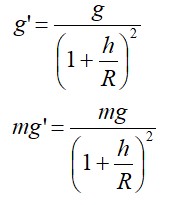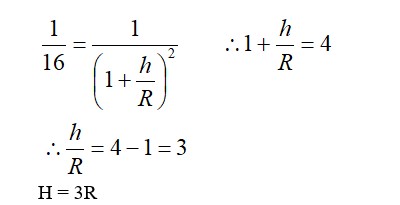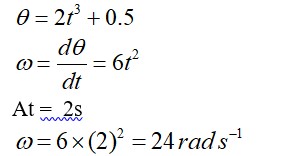8.6 Choose the correct alternative:
(a) If the zero of potential energy is at infinity, the total energy of an orbiting satellite is negative of its kinetic/potential energy
(b) The energy required to launch an orbiting satellite out of earth's gravitational influence is more/less than the energy required to project a stationary object at the same height (as the satellite) out of earth's influence
8.6 Choose the correct alternative:
(a) If the zero of potential energy is at infinity, the total energy of an orbiting satellite is negative of its kinetic/potential energy
(b) The energy required to launch an orbiting satellite out of earth's gravitational influence is more/less than the energy required to project a stationary object at the same height (as the satellite) out of earth's influence
(a) Total mechanical energy of a satellite is the sum of its kinetic energy (always positive) and potential energy (can be either positive or negative). At infinity, the gravitational potential energy of the satellite is zero. As the Earth-Satellite system is a bound system, the total energy of the
Similar Questions for you
->R3 = (R + x)2 (R – x)
->R3 = (R2– x2) (R + x)
->x2 + Rx – R2 = 0
R is not correct.
Taking an Exam? Selecting a College?
Get authentic answers from experts, students and alumni that you won't find anywhere else.
On Shiksha, get access to
Learn more about...

physics ncert solutions class 11th 2023
View Exam DetailsMost viewed information
SummaryDidn't find the answer you were looking for?
Search from Shiksha's 1 lakh+ Topics
Ask Current Students, Alumni & our Experts
Have a question related to your career & education?
See what others like you are asking & answering




